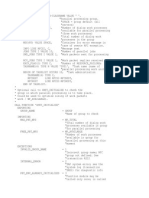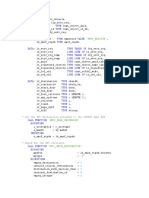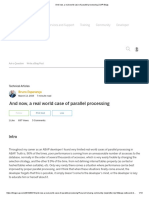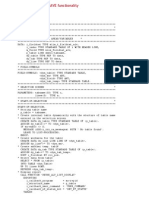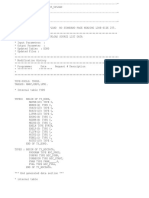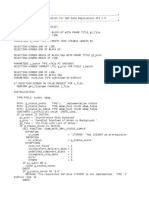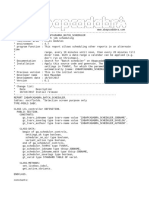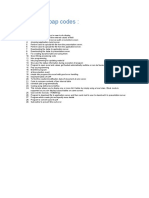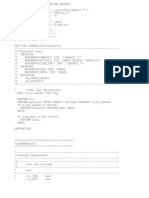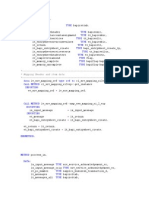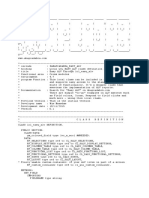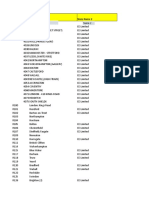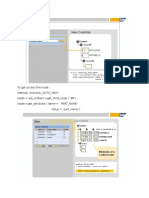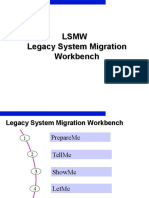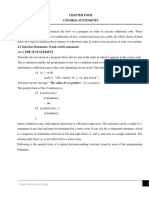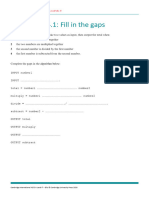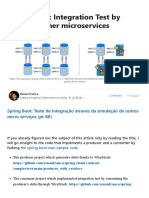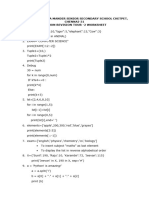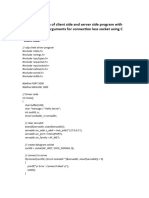0% found this document useful (0 votes)
111 views7 pagesParallel Processing in SAP ABAP
This document defines types and data objects used to process data in parallel tasks across multiple application servers. It includes forms for callbacks before, during, and after remote function calls (RFCs) to split data into packages, process packages across servers, and combine results. The before form splits data into tasks, the in form processes a task package via RFC, and the after form combines task results.
Uploaded by
avijitkumaraichCopyright
© © All Rights Reserved
We take content rights seriously. If you suspect this is your content, claim it here.
Available Formats
Download as TXT, PDF, TXT or read online on Scribd
0% found this document useful (0 votes)
111 views7 pagesParallel Processing in SAP ABAP
This document defines types and data objects used to process data in parallel tasks across multiple application servers. It includes forms for callbacks before, during, and after remote function calls (RFCs) to split data into packages, process packages across servers, and combine results. The before form splits data into tasks, the in form processes a task package via RFC, and the after form combines task results.
Uploaded by
avijitkumaraichCopyright
© © All Rights Reserved
We take content rights seriously. If you suspect this is your content, claim it here.
Available Formats
Download as TXT, PDF, TXT or read online on Scribd
/ 7



